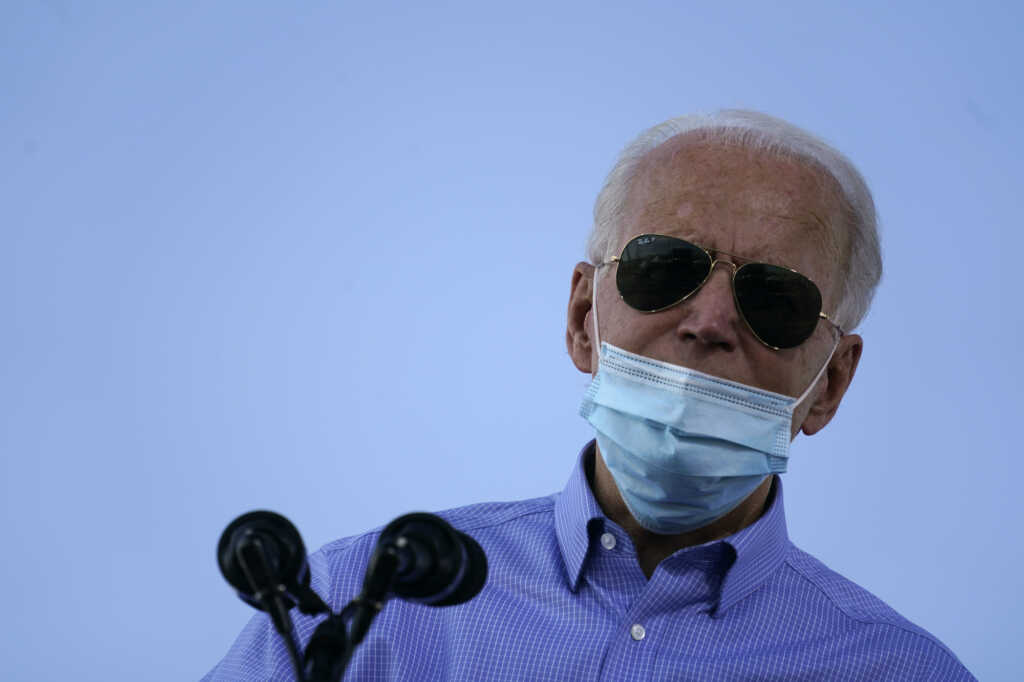Democratic presidential nominee Joe Biden has made clear in no uncertain terms that voters have no right to know his position nowadays on court packing. But if we look back to his time in Congress, the now-77-year-old politician was more than once very unspoken about the move the Democratic Party now supports.
On Saturday, a reporter asked Biden — once again — if he would support court packing, that is expanding the number of justices on the Supreme Court in order to create a Democratic majority in the judicial body. He said Americans “don’t deserve” to know what he would do if elected president next month.
Yes, that’s really what he said:
Previously, he told reporters he would not answer the question over court packing because his answer would be a news story:
But this isn’t always how the former senator and vice president felt.
In fact, Biden, who has been in politics for half a century, used to be very outspokenly opposed to the idea of packing the court — a perspective held, too, by the late Justice Ruth Bader Ginsburg, who called the effort a “bad idea” that “would make the court look partisan.”
In 1983, when he was a senator from Delaware under then-President Ronald Reagan, Biden, who sat on the Senate Judiciary Committee, criticized court packing as “a bonehead idea” and “a terrible, terrible mistake,” referring back to 1937, when then-President Franklin D. Roosevelt tried to pack the Supreme Court.
“President Roosevelt clearly had the right to send to the United States Senate and the United States Congress a proposal to pack the court,” said Biden. “It was totally within his right to do that. He violated no law. He was legalistically, absolutely correct. But it was a bonehead idea. It was a terrible, terrible mistake to make. And it put in question, if for an entire decade, the independence of the most-significant body … in this country, the Supreme Court of the United States of America.”
Here’s a clip of that comment:
Then again, in 2005, Biden unapologetically condemned court packing.
The then-senator said Roosevelt’s effort to pack the Supreme Court proved the New Deal president was “corrupted by power.”
“He wanted to increase the number of justices to 15, allowing himself to nominate those additional judges,” Biden explained. “It took an act of courage on the part of his own party, institutionally, to stand up against this power grab.”
He added that court packing would be an exercise in “political exigency.”
Here is that clip:
All the conversations over court packing come as President Donald Trump has nominated Chicago Judge Amy Coney Barrett to fill Ginsburg’s now-vacant seat on the Supreme Court.
Hearings for Barrett’s confirmation to the high court began Monday morning. Both Biden and his running mate, Sen. Kamala Harris (D-Calif.), who sits on the Senate Judiciary Committee, oppose Barrett’s nomination along purely political lines.



